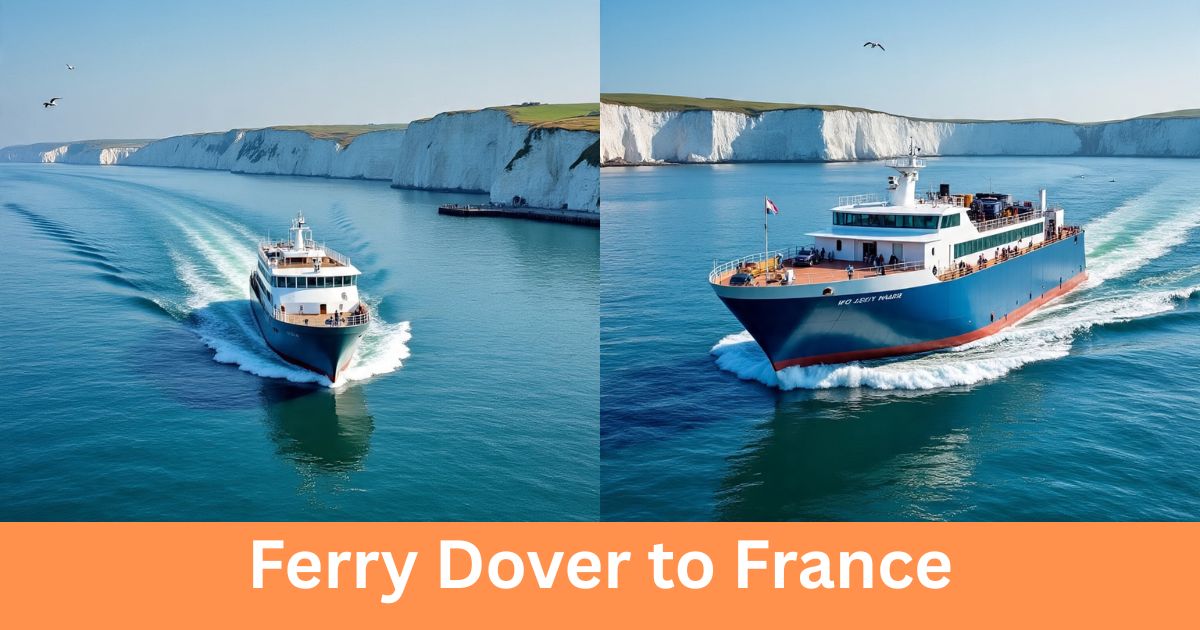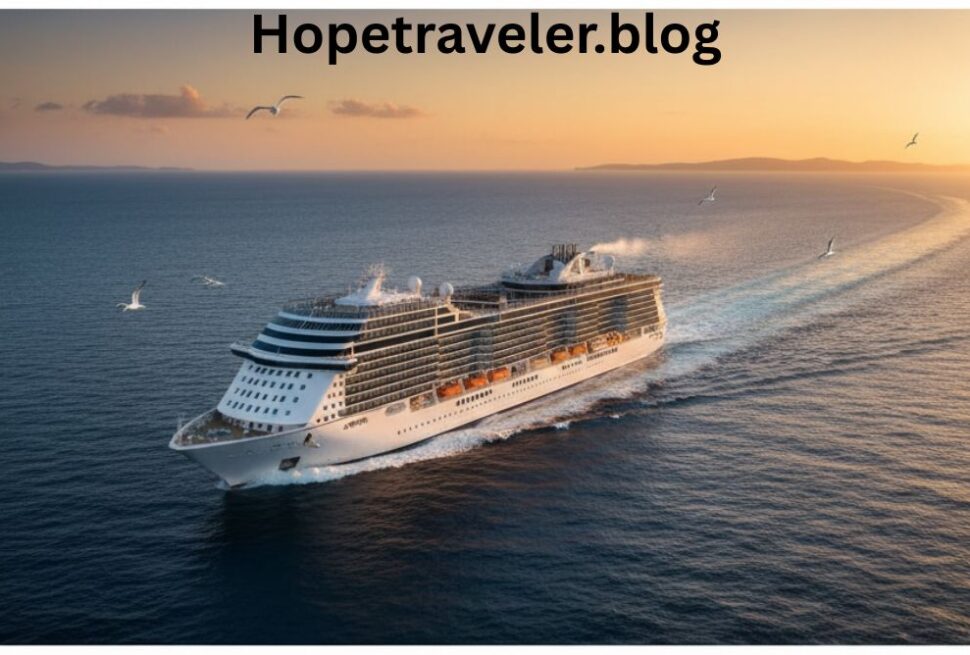The ferry route from Dover to France is one of the busiest and most iconic sea crossings in Europe. Connecting the southeastern coast of England with the northern coast of France, this route is not just a means of transportation but also a gateway for travelers, tourists, and commercial trade. With history, convenience, and beautiful seascapes, the journey across the English Channel remains a favorite among many.
Introduction to the Dover to France Ferry Route
Dover, located in Kent, England, is a historic port town known for its iconic White Cliffs and strategic significance. The port of Dover is one of the world’s busiest passenger ports and serves as the primary hub for ferry travel between the UK and mainland Europe.
On the French side, the most common destination is Calais, a major port city in northern France. Some ferries also dock at Dunkirk, offering additional travel flexibility. The Dover to Calais ferry route is around 21 miles (34 km) and typically takes about 90 minutes.
Why Choose a Ferry from Dover to France?
Traveling by ferry offers numerous benefits compared to flying or using the Channel Tunnel:
- Cost-effective travel: Especially for families and groups with vehicles.
- No luggage limits: Unlike airlines, ferries offer generous luggage allowances.
- Freedom with your vehicle: You can take your car, campervan, or motorcycle, making onward travel easier.
- Scenic views: Enjoy the picturesque seascape of the English Channel.
- Pet-friendly options: Most ferries allow you to travel with pets under specific conditions.
Popular Ferry Operators
Several major ferry operators serve the Dover to France route, each offering a range of departure times and services:
1. P&O Ferries
One of the oldest and most popular operators, P&O offers multiple daily crossings between Dover and Calais. The company provides excellent onboard facilities including restaurants, lounges, shops, and priority boarding.
2. DFDS Seaways
DFDS operates routes to both Calais and Dunkirk. They are known for reliable service and onboard amenities such as Wi-Fi, children’s play areas, and private lounges.
3. Irish Ferries
The newest entrant to the Dover-Calais route, Irish Ferries brings modern ships and competitive pricing to the market.
Booking Your Ferry
Booking a ferry from Dover to France is simple and can be done online through the ferry operator’s website or through third-party travel platforms. When booking, you’ll need to specify:
- Date and time of travel
- Number of passengers
- Vehicle details (if applicable)
- Pet travel (if you’re traveling with animals)
It’s advisable to book in advance, especially during peak seasons like summer holidays, Easter, and Christmas, to secure your preferred time and pricing.
Required Documents and Travel Considerations
As of the UK’s exit from the EU, travelers must be aware of the updated documentation requirements. When taking the ferry from Dover to France, ensure you have the following:
- Valid passport (with at least 6 months of validity remaining)
- Visa (if required) for non-UK/EU citizens
- Vehicle insurance (Green Card) if you’re driving
- European driving kit (including high-visibility vests, warning triangle, headlamp adjusters, etc.)
For the latest information, check the UK government’s official travel advice for France.
Onboard Experience
While onboard the ferry, passengers can enjoy a wide range of services:
- Dining: Cafeterias, fast food outlets, and formal dining depending on the ferry.
- Shopping: Duty-free shops offer a selection of alcohol, tobacco, perfumes, and souvenirs.
- Lounges: Comfortable seating areas, premium lounges, and business-class upgrades.
- Wi-Fi access and charging points are available on most modern vessels.
- Children’s areas and entertainment zones for family travelers.
The ferry ride itself is smooth and enjoyable, often offering panoramic views of the sea and occasional sightings of marine wildlife.
Environmental Impact and Sustainability
Sea travel has historically been considered less polluting than air travel for short distances. Many ferry companies are now working toward sustainability, introducing cleaner fuel technologies, reducing emissions, and improving energy efficiency.
Newer ships are being built with low-sulfur fuel engines, and onboard recycling programs are becoming standard across fleets. Traveling by ferry can be a greener alternative, especially when paired with an electric vehicle.
Alternative Travel Options
Although the ferry is a top choice, travelers also have other options:
- Eurotunnel Shuttle: From Folkestone to Calais through the Channel Tunnel, taking just 35 minutes.
- Flight: You can fly from London airports to Paris or Lille, although it’s less convenient for those traveling with cars or large baggage.
- Coach or train: Intercity buses and the Eurostar high-speed train offer overland alternatives.
However, for those valuing flexibility, scenic views, and comfort, the ferry from Dover to France remains unmatched.
Tips for a Smooth Journey
Here are some practical tips to enhance your ferry travel experience:
- Arrive early: Recommended check-in is at least 60–90 minutes before departure.
- Stay updated: Check live ferry schedules and weather reports for delays.
- Bring snacks and drinks: Though available onboard, having your own supplies helps.
- Currency exchange: Most ships accept both GBP and EUR, but rates may vary.
- Travel insurance: Always a good idea in case of delays or cancellations.
Final Thoughts
The Ferry Dover to France route offers travelers a comfortable, scenic, and flexible option to cross the English Channel. Whether you’re embarking on a road trip through Europe or just visiting Northern France, the ferry experience adds charm and convenience to your journey.
With frequent departures, top-notch onboard amenities, and affordable fares, it remains the preferred choice for thousands of passengers daily. As a historical and functional gateway between two cultures, this crossing continues to thrive as one of the most practical and iconic routes in modern European travel.
For more on Dover and its significance, you can visit the Dover Wikipedia page.




